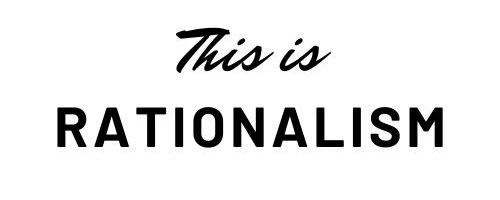
Rationalism in Nursing Theory has played a pivotal role in shaping modern nursing practices, emphasizing logic, evidence, and systematic approaches to patient care. This philosophy, rooted in the belief that reason is the primary source of knowledge, influences nursing theories and practices by encouraging critical thinking, structured problem-solving, and decision-making based on empirical evidence.
In this article, we explore how rationalism has shaped the development of nursing theories, its impact on patient care, and the challenges it faces in the ever-evolving healthcare landscape.
Understanding Rationalism
Rationalism is a philosophy that asserts reason and logic as the primary sources of knowledge, often in contrast to experience or sensory perception. In the context of nursing, rationalism emphasizes the importance of logical thinking and scientific evidence when making decisions related to patient care. It encourages nurses to apply structured, evidence-based approaches to solve complex healthcare problems. This mindset fosters the development of nursing theories grounded in reason and systematic thinking, providing a framework for consistent, reliable care. Rationalism also highlights the significance of understanding the principles behind healthcare practices, not just the practices themselves.
Nursing Theories and the Influence of Rationalism
#1. Florence Nightingale’s Environmental Theory
Florence Nightingale’s Environmental Theory focuses on the relationship between a patient’s environment and their health. Rationalism influenced this theory by emphasizing the use of evidence and systematic observation. Nightingale applied logical reasoning to understand how factors like cleanliness, ventilation, and light directly impacted patient recovery. Her approach was grounded in empirical research, marking the beginning of evidence-based practices in nursing. This rationalist framework continues to shape nursing interventions today, stressing the importance of a healing environment for optimal patient outcomes.
#2. Hildegard Peplau’s Interpersonal Relations Theory
Hildegard Peplau’s Interpersonal Relations Theory outlines the nurse-patient relationship as a dynamic process of communication and collaboration. Rationalism influenced Peplau by emphasizing structured communication strategies based on logical frameworks. Peplau used her clinical observations to develop a model that considered the psychological and emotional states of patients while maintaining a rational approach to understanding and addressing their needs. Her theory provided a logical structure for nurses to use in fostering therapeutic relationships with patients, reinforcing the role of reason in effective caregiving.
#3. Dorothea Orem’s Self-Care Deficit Nursing Theory
Dorothea Orem’s Self-Care Deficit Nursing Theory emphasizes the patient’s role in their own care, identifying when a person’s ability to perform self-care is impaired. Rationalism shaped this theory by focusing on the logical analysis of self-care needs and deficits. Orem’s approach relied on reasoned judgment to determine the types of interventions required to help patients meet their own needs. This theory underscored the importance of systematic assessment and structured decision-making to provide personalized and effective nursing care.
#4. Jean Watson’s Theory of Human Caring
Jean Watson’s Theory of Human Caring emphasizes the importance of holistic, compassionate care in nursing practice. Rationalism influenced Watson’s theory by encouraging logical, thoughtful approaches to nursing interventions. Watson’s focus on the mind-body connection and the importance of caring was informed by reason and empirical understanding of human health. Rational analysis played a key role in Watson’s concept of “carative factors,” which guide nurses to deliver care that is not only scientifically grounded but also empathetic and nurturing for patients.
#5. Madeleine Leininger’s Transcultural Nursing Theory
Madeleine Leininger’s Transcultural Nursing Theory highlights the importance of understanding cultural differences in nursing care. Rationalism contributed to this theory by promoting evidence-based assessments of how cultural beliefs and practices impact health and healthcare delivery. Leininger’s theory encouraged nurses to apply a logical framework to evaluate the cultural context of each patient’s needs. By integrating rational thought with cultural sensitivity, her theory provided a model for delivering care that respects both individual and cultural differences, enhancing patient outcomes across diverse populations.
#6. Betty Neuman’s Systems Model
Betty Neuman’s Systems Model focuses on the patient as a whole, including physiological, psychological, sociocultural, and developmental factors. Rationalism influenced this model by encouraging a logical, systematic approach to understanding the various factors that affect patient health. Neuman’s use of a systems theory framework allows nurses to analyze a patient’s condition from multiple perspectives, enabling the development of comprehensive care plans. This rational approach to patient assessment and care ensures that all aspects of the patient’s well-being are considered, promoting holistic and effective nursing care.
#7. Sister Callista Roy’s Adaptation Model
Sister Callista Roy’s Adaptation Model views nursing as a process that helps patients adapt to changes in their health and environment. Rationalism influenced this model by supporting the idea that adaptation requires logical, reasoned strategies. Roy’s theory emphasized the importance of systematic assessments and interventions that help patients maintain balance in the face of stressors. Rational thought is applied to identify adaptive or maladaptive responses, guiding nurses to implement interventions that promote the patient’s ability to adapt to both physical and emotional challenges.
#8. Patricia Benner’s Novice to Expert Model
Patricia Benner’s Novice to Expert Model focuses on the development of clinical skills and expertise in nursing practice. Rationalism plays a role by encouraging the logical progression from novice to expert through a structured, evidence-based learning process. Benner’s model highlights the importance of experience in decision-making but also emphasizes the value of reasoned, logical thinking at every stage of development. Nurses are encouraged to build their clinical knowledge through critical thinking and reflection, promoting systematic learning and improvement in patient care practices.
#9. Imogene King’s Goal Attainment Theory
Imogene King’s Goal Attainment Theory emphasizes the nurse-patient relationship and the achievement of mutually agreed-upon goals. Rationalism influenced this theory by supporting the idea that clear, logical communication is necessary for setting and achieving goals. King’s model relies on systematic interactions between nurse and patient, using structured communication to identify goals and develop care plans. The use of rational thought ensures that goals are realistic and attainable, and that interventions are based on the best available evidence to achieve the desired outcomes.
#10. Martha Rogers’ Science of Unitary Human Beings
Martha Rogers’ Science of Unitary Human Beings conceptualizes patients as integrated beings whose health is influenced by both environmental and internal factors. Rationalism influenced Rogers’ theory by promoting a logical, evidence-based approach to understanding the complexities of human health. Rogers used empirical research to support her ideas about energy fields and the interactions between humans and their environment. This rationalist approach provided a framework for nurses to consider the dynamic relationships between patients and their surroundings, guiding holistic care practices focused on promoting health and well-being.
#11. Nola Pender’s Health Promotion Model
Nola Pender’s Health Promotion Model emphasizes the importance of proactive health behaviors and the role of nurses in promoting these behaviors. Rationalism shaped Pender’s model by supporting the use of evidence-based strategies to influence health-related decisions. Pender’s theory applies logical, systematic thinking to understanding why individuals engage in certain health behaviors and how they can be encouraged to make positive changes. Nurses use this rational framework to assess risk factors, provide education, and help patients adopt healthier lifestyles through informed decision-making.
#12. Virginia Henderson’s Need Theory
Virginia Henderson’s Need Theory focuses on the fundamental needs of patients and the role of nurses in helping patients meet these needs. Rationalism influenced this theory by encouraging the logical identification of basic human needs and how they can be addressed through nursing interventions. Henderson’s model provides a structured framework for nurses to assess and prioritize patient needs, ensuring that care is individualized and evidence-based. By applying reasoned judgment, nurses can effectively address physical, psychological, and social needs, leading to improved patient care and outcomes.
The Influence of Rationalism on Nursing Practices
#1. Emphasis on Evidence-Based Practice
Rationalism prioritizes the application of logical analysis and empirical evidence in decision-making. This emphasis has led to the development of evidence-based practices in nursing. By relying on research data and clinical studies, nurses are equipped to provide care that is both scientifically sound and effective. Rationalism encourages critical evaluation of existing methods and adoption of new, proven techniques, ensuring that patient care consistently reflects the latest advancements in medical science.
#2. Development of Systematic Nursing Theories
Rationalism has driven the creation of structured nursing theories that serve as comprehensive frameworks for care. These theories, grounded in logical reasoning, allow nurses to understand, predict, and evaluate patient outcomes systematically. Rationalist principles enable theorists to build models that organize nursing knowledge into practical, repeatable processes, enhancing the consistency and quality of care across diverse healthcare settings.
#3. Focus on Logical Problem-Solving in Patient Care
Nurses, guided by rationalism, use structured problem-solving methods to address patient needs. Rationalism fosters the use of critical thinking to analyze symptoms, identify root causes, and design interventions tailored to individual patients. Logical reasoning ensures that care is not arbitrary but rooted in a systematic understanding of health conditions, leading to more accurate diagnoses and effective treatments.
#4. Integration of Empirical Research in Decision-Making
The rationalist philosophy underscores the importance of using empirical research to inform clinical decisions. Nurses integrate findings from studies and clinical trials into their practice, ensuring interventions are based on validated knowledge. This approach minimizes guesswork and improves the reliability of patient outcomes by grounding nursing actions in scientifically tested principles.
#5. Standardization of Nursing Protocols
Rationalism has contributed to the standardization of nursing protocols, ensuring consistency and fairness in patient care. By applying logical frameworks, healthcare institutions have established guidelines that outline best practices for various scenarios. These protocols provide nurses with a reliable structure for addressing common challenges, enhancing efficiency and reducing the likelihood of errors in clinical settings.
#6. Implementation of Technological Innovations
Rationalism has encouraged the adoption of technology in nursing, transforming patient care delivery. Logical evaluation of technological tools, such as electronic health records and monitoring devices, has enabled their effective integration into clinical workflows. These innovations, informed by rationalist principles, improve data accuracy, streamline processes, and provide real-time insights, ultimately enhancing patient safety and care quality.
#7. Enhanced Clinical Assessments Through Rational Analysis
Rationalism strengthens clinical assessments by promoting logical analysis of patient data. Nurses use critical thinking to evaluate symptoms, interpret diagnostic results, and assess patient history comprehensively. This structured approach ensures thorough evaluations, leading to well-informed care plans tailored to the unique needs of each patient, thereby improving health outcomes.
Challenges and Limitations of Rationalism in Nursing
Rationalism in nursing, while valuable, has its limitations. Its emphasis on logic and empirical evidence can overshadow the intuitive and emotional aspects of care, which are essential in addressing the deeply personal and cultural needs of patients. Not all healthcare challenges can be measured or solved through reason alone, and over-reliance on systematic processes may reduce flexibility in addressing complex or unique patient situations.
Additionally, rationalism depends on access to resources such as research, technology, and education, which may be lacking in some healthcare settings. This disparity can hinder the application of evidence-based practices, creating inequalities in patient care. Moreover, an overly rationalist approach risks neglecting the empathetic, interpersonal connection that is central to nursing, underscoring the need to balance reason with the humanistic elements of caregiving.
Conclusion
Rationalism has profoundly shaped nursing theory and practice by promoting evidence-based, logical approaches to patient care. While it has led to the development of systematic theories and improved clinical outcomes, it also faces challenges in addressing the emotional, cultural, and intuitive aspects of nursing.
Striking a balance between rationalist principles and the humanistic elements of care is crucial for delivering holistic, compassionate healthcare. Despite its limitations, rationalism continues to play a key role in advancing nursing practices, pushing the profession toward greater efficiency, accuracy, and consistency.
